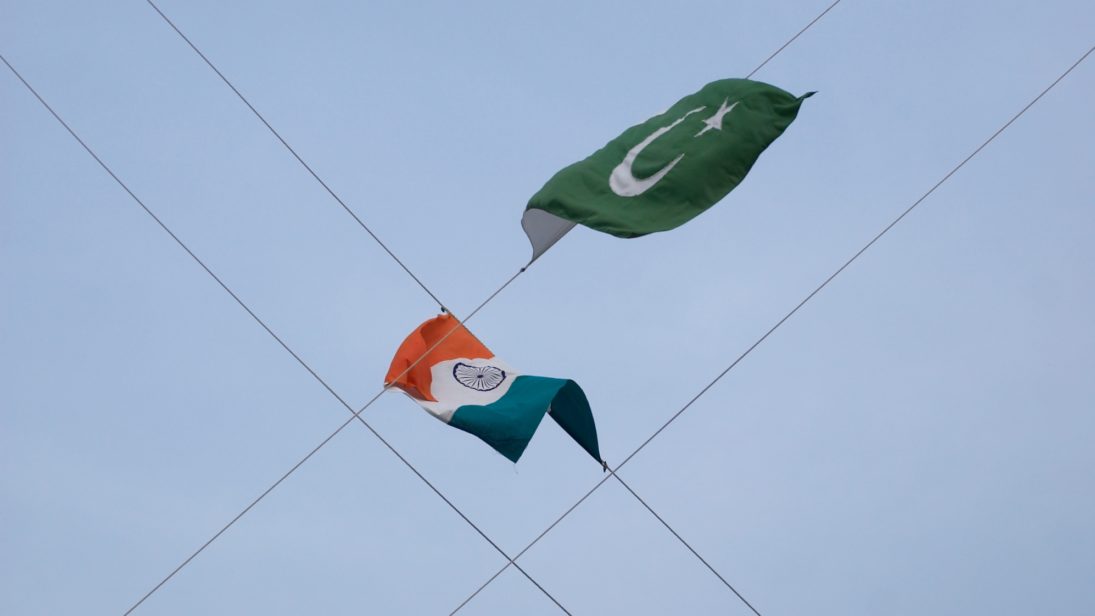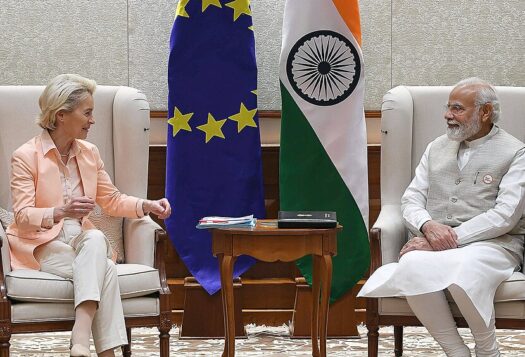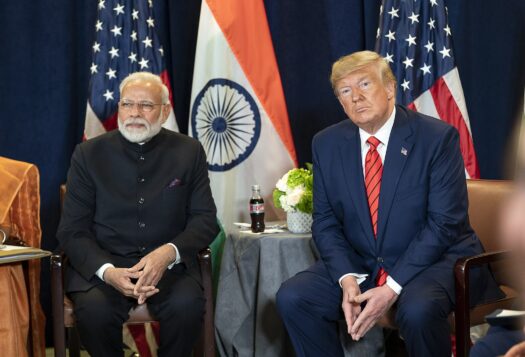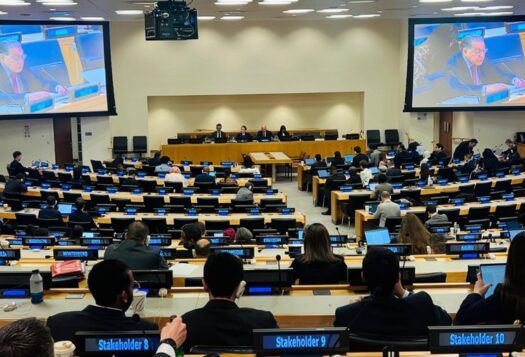
In the past year of India-Pakistan tensions, cross-border kinetic exchanges have become the norm while peace talks have stalled. In an interview, last November, Pakistan’s Foreign Minister Khawaja Asif did not rule out the use of nuclear weapons during a crisis if the country’s survival were at stake. Tensions mounted further when the Indian Army Chief General Bipin Rawat said recently that India would call Pakistan’s “nuclear bluff” if a crisis were to erupt along the border. Even minor clashes risk escalating into crises if there is no progress towards the resolution of longstanding bilateral disputes.
Points of contention remain abundant. New Delhi’s persistent refrain that Pakistan sponsors militancy on Indian soil, Islamabad’s counter-accusations of the same, and Pakistan’s discomfort at the prospect of Indo-U.S. alignment in Afghanistan, particularly in light of U.S. President Trump’s New Year’s tweet calling Pakistan out for “lies & deceit” in Afghanistan, have continued to define India-Pakistan tensions into 2018. However, policymakers in Islamabad should realize that without the normalization of relations with India and even the United States, Pakistan is committing itself to a costly arms race that inhibits it from concentrating on other national interests such as economic growth, political stability, and infrastructure development.
Release of Hafiz Saeed
One of the flare-ups in the India-Pakistan relationship last year was the release of Hafiz Saeed, the head of the militant group Lashkar-e-Taiba(LeT). Though Pakistani authorities placed Saeed under house arrest in Lahore in early 2017 as a result of Pakistan’s anti-terrorism laws, the Lahore High Court review board released him due to a lack of evidence at the end of the year. The release of Saeed provoked an international backlash, with outraged Indian officials saying the release of Saeed revealed Pakistan’s “true face” and demonstrated the country’s attempt to mainstream proscribed terrorist groups. The United States contended that the move sends a “message about Pakistan’s commitment to combatting international terrorism.”
LeT has long been a bone of contention between India and Pakistan. When the Cold War was near its end in 1987, Saeed, Abdullah Azzam, and Zafar Iqbal established LeT and recruited militants to fight in Afghanistan alongside the Taliban. In the early 1990s, allegedly with help from elements of Pakistan’s Inter-Services Intelligence (ISI), LeT directed its operational focus towards Kashmir, where there was an anti-India insurgency simmering. Reportedly, Saeed wished to harness LeT to subvert India’s control over Kashmir through militancy, just as the mujahideen had disintegrated the Soviet Union’s influence in Afghanistan. In the 2000s, the Indian government blamed Saeed and LeT for multiple high-profile terrorist attacks, including two deadly incidents targeting the Indian Parliament building in 2001 and Mumbai in 2008. Under immense pressure from the United States, former President General Pervez Musharraf banned LeT in Pakistan in 2002. However, the group soon reemerged by the name of Jamaat-ud-Dawa (JuD), a humanitarian charity led by Saeed that is widely considered a front for LeT’s activities. In 2014, the U.S. Department of State proscribed JuD, declaring the group a “foreign terrorist organization.” The United Nations Security Council (UNSC), as a part of UNSC Resolution 1267, also imposed sanctions on JuD and declared it a terrorist organization due to its alleged links to Al-Qaeda.
Islamabad’s failure to act against groups like LeT and JuD not only strains its relationship with India but also undermines the credibility of Pakistan’s counterterrorism efforts on the global stage. For one thing, by continuing to carry out such policies, Pakistan risks irreparably damaging its relationship with India, which has long accused Islamabad of sponsoring cross-border terrorism and covertly backing separatists in Kashmir. Also, Pakistan’s twenty-point National Action Plan (NAP), enacted in 2014 after a deadly attack on a schoolhouse in Peshawar, is quite comprehensive in the strategies it hopes to employ to curb militant activity inside the country. But continuing to protect LeT and JuD will have negative ramifications on how the rest of the world views the sincerity of the NAP. If Pakistan hopes to achieve normalization of relations with India and wants its counterterrorism efforts to be viewed seriously, it must crack down on all militants, including JuD and other entities connected to it, indiscriminately. It should also demonstrate its willingness to comply with international legal mechanisms such as the United Nation’s sanctions monitoring team, which is paying a routine visit to Pakistan this week to assess the country’s compliance with sanctions regimes.

Indo-U.S. Nexus in Afghanistan
Another factor that troubles India-Pakistan ties is the issue of Afghanistan. Pakistan is cautious of an expanded Indian presence in Afghanistan as it believes a pro-India government in Kabul could permit New Delhi to sponsor militancy in Pakistan and might even lead to a two-front war with India in the event of a crisis. At the same time, India supports Afghanistan’s current National Unity Government (NUG) as it is opposed to the existence of a Taliban-like regime in Kabul that might reinforce LeT and other militant groups directed at India.
Pakistan’s relations with the United States are already shaky because of U.S. President Trump’s tough stance towards Islamabad over the issue of militant groups based in Pakistan. Islamabad-based strategists perceive the growing alignment between New Delhi and Washington on Afghanistan to be an “Indo-U.S. nexus”—a partnership that is explicitly aimed at undermining Pakistan’s regional and global interests. Trump’s New Year’s tweet was a prelude to the suspension of security-related aid worth at least $900 million, as a response to which Pakistan’s Foreign Ministry shut down Radio Mashaal—a U.S.-funded radio station—in the interest of Pakistan’s national security.
While this tenuous situation certainly undermines regional stability, it also does not augur well for Pakistan’s regional and global interests. If Islamabad were to stabilize its relations with Afghanistan and the United States, it could then focus on normalizing the situation with India on its eastern front, promoting economic growth and development within Pakistan, and ensuring a peaceful election season.
Conclusion
Looking ahead into 2018, Pakistan should begin to look inward instead of outward. Throughout the past several decades, poor bilateral relations with the country’s western and eastern neighbors have limited Islamabad’s options for regional economic partnerships and linkages, affected the country’s internal political stability, and drained Pakistan’s economic resources. By constructively engaging with India and the United States, cracking down on militants like Hafiz Saeed, and promoting stability in Afghanistan, Pakistan can set itself up for success into 2018 and beyond.
***
Image 1: My Past via Flickr
Image 2: Arif Ali via Getty Images


